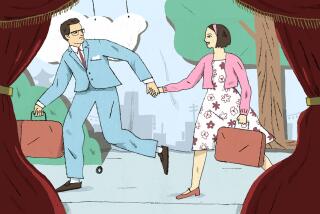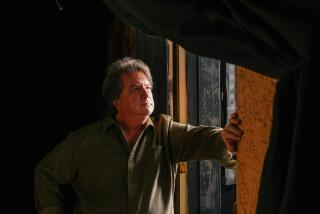Column: A convict, a victim and a rapt audience of teenagers ponder justice, time and the price of forgiveness
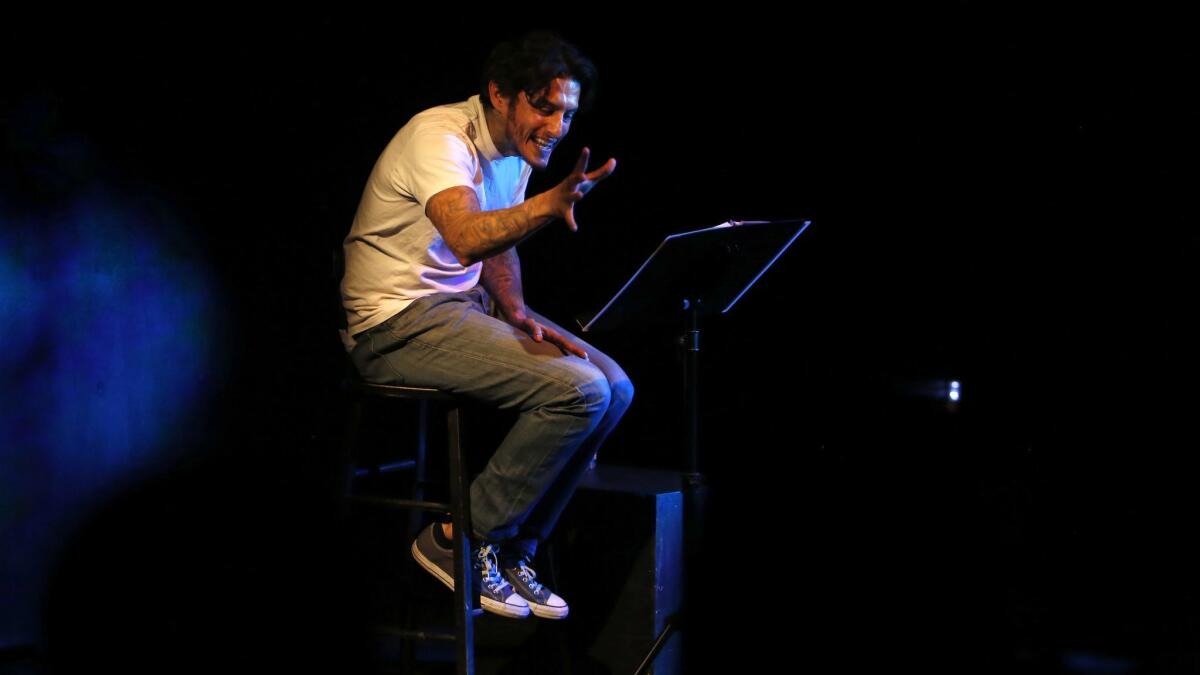
The play opened with the convict.
“You’re gonna have to bear with me,” he said, seated on a stool in a darkened room, bathed in a lone shaft of light.
“I don’t do this too much,” he continued. “I mean, talk to people. Regular people. You know … free people.”
The character, a young Latino male, is doing hard time on a murder conviction, much of it in solitary confinement.
The audience, several dozen students from Hawthorne High School and King/Drew Magnet High School of Medicine and Science, sat in silence as the convict faded into darkness and the light shone on the other character, a middle-aged African American woman.
“My name is Anna Jackson,” she said. “ ’Jackson’ is my married name.”
I wondered, in the early moments of a nearly two-hour play at the Pico Playhouse, how the two actors were going to pull this off. Teenagers fidget. Their minds wander. They reach for their phones. And the actors didn’t have the advantage of a full production. This was just a reading. No set. No props. No costumes. Just two actors taking turns telling parallel stories with no promise of an intersection.
But l soon stopped thinking about whether it would work. Like the students, I was riveted by the performances, as well as the sharp writing and observations in a play called “Time Alone,” by Alessandro Camon.
Judy Bush had told me this would happen. She’d sent invites and promises, beginning last year, that something powerful and magical happens when students watch a play that speaks to them.
“They are the best audiences!” wrote Bush.
Since 2001, she’s been introducing local high school students to theater with her nonprofit Classic and Contemporary American Plays, which is named for her sister, the late actress Bonnie Franklin. The students read and discuss all or part of a play in school, then get to see a professional performance, followed by a discussion with the actors, writers and directors.
It makes perfect sense in a region teeming with creative professionals, and with public schools that have undergone cuts in arts instruction over the years.
I caught the third performance of “Time Alone,” in which the two actors were so good, it felt as if the whole city was cheated by not being there. Richard Cabral played inmate Gabriel Wayland, and actress Hattie Winston played Anna Jackson.
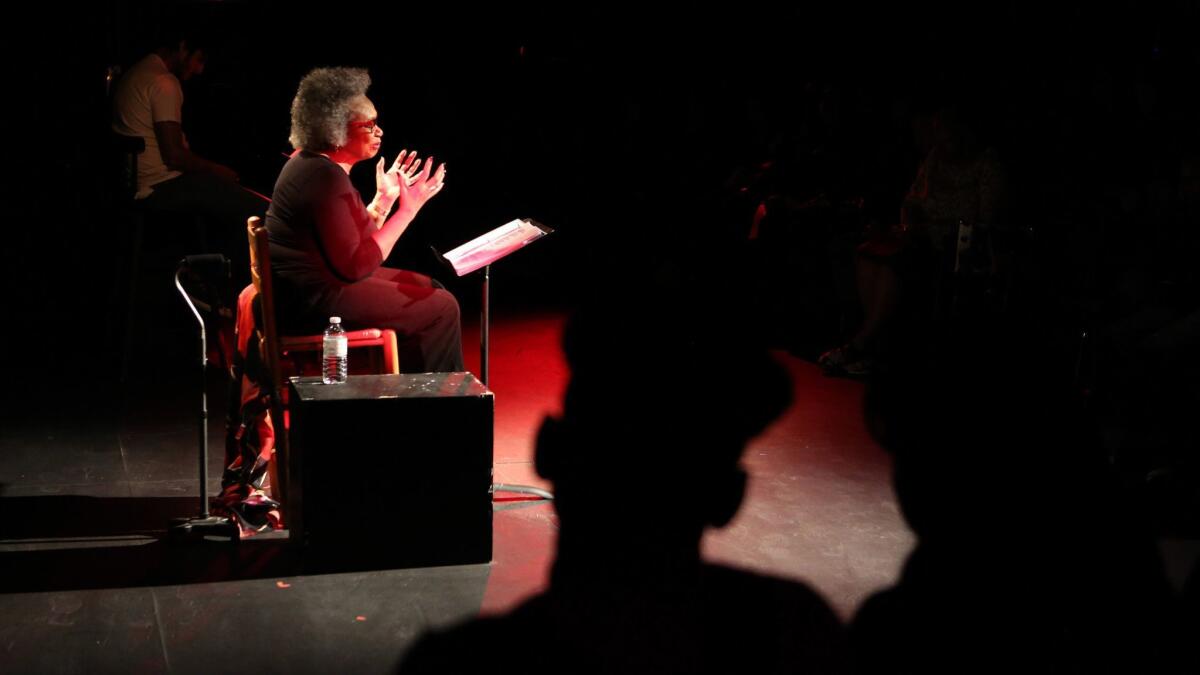
Gabriel, who grew up in dire circumstances, is doing time for killing a rival gang member as a teenager. Anna is doing her own hard time. First she lost her husband to a heart attack. “A bolt from the blue — no warning sign,” as she describes it. Then she lost her only son — like his father, a police officer — in a shootout with a gas station stickup man.
“Prisons are haunted,” says Gabriel, who begins to go mad 10 years into a life sentence. “Ghosts of the people you hurt. Their dead eyes staring at you.”
“I heard it all,” Anna says. “All the excuses. Hurt people hurt people. Depraved ’cause he was deprived. The impoverished childhood. The absent father. The early exposure to violence and drugs. To which I say, ‘So what?’ You don’t choose the cards you’re dealt. But how you play them — that’s on you.”
And so it goes, dueling monologues from across the divide by two people filled with anger, regret, loss. But in their haunted isolation, for all their differences, victim and perpetrator both experience time as a tool of torture. And then, in a twist I can’t give away, they discover a connection that carries with it a hint of redemption.
In the final scene, the two actors stood.
They walked toward each other.
The room went dark.
The audience rose.
The student next to me, Gabriel Vasquez, had said before the play that he wanted to be a doctor or a cop. When it was over, he said he might want to be a writer.
In the program notes, playwright Camon wrote, “When we hear stories about those we don’t know, we have a chance to recognize our common humanity.”
After the play, he explained to students that he’s visited prisons for years, as a writing teacher and someone who sees massive levels of incarceration as a symptom of a fractured and divided society.
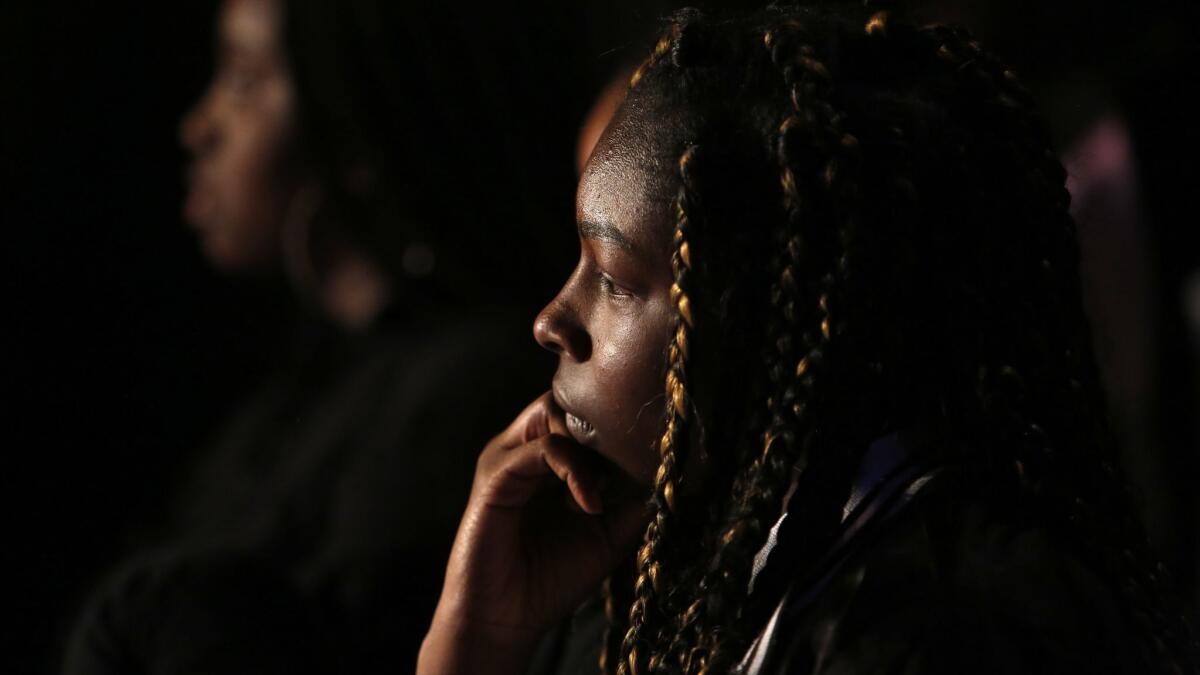
“But I didn’t just want to write about a guy in prison,” Camon said. “I needed to have a different perspective — that of people who are hurt.”
In the conversation that followed, half of the hands went up when students were asked if they knew someone who had been incarcerated.
“You hit me right here,” a student named Torie Russell told the cast and crew, hands to his heart.
One student said she’s opposed to the death penalty, but watching the play made her think execution would be an act of mercy compared with solitary confinement. Another wanted the actors to explain how they got into character, and that led to two revelations.
Cabral grew up much like Gabriel, the character he played. He was a gang member in Los Angeles, went to prison in a plea deal after a charge of attempted murder, did some rehab in Father Greg Boyle’s Homeboy Industries, then went on to become an Emmy-nominated actor.
Winston, who played Anna and serves as vice president of Bush’s nonprofit, said she grew up in segregated Mississippi, and she recalls blacks-only water fountains and theater sections. She said she’d been abused as a child and was removed from her home for a while.
“There’s a person here … who’s been through a lot,” Winston told students, “and I’m no different from any of you. We just have to keep fighting and realizing our own individual value.”
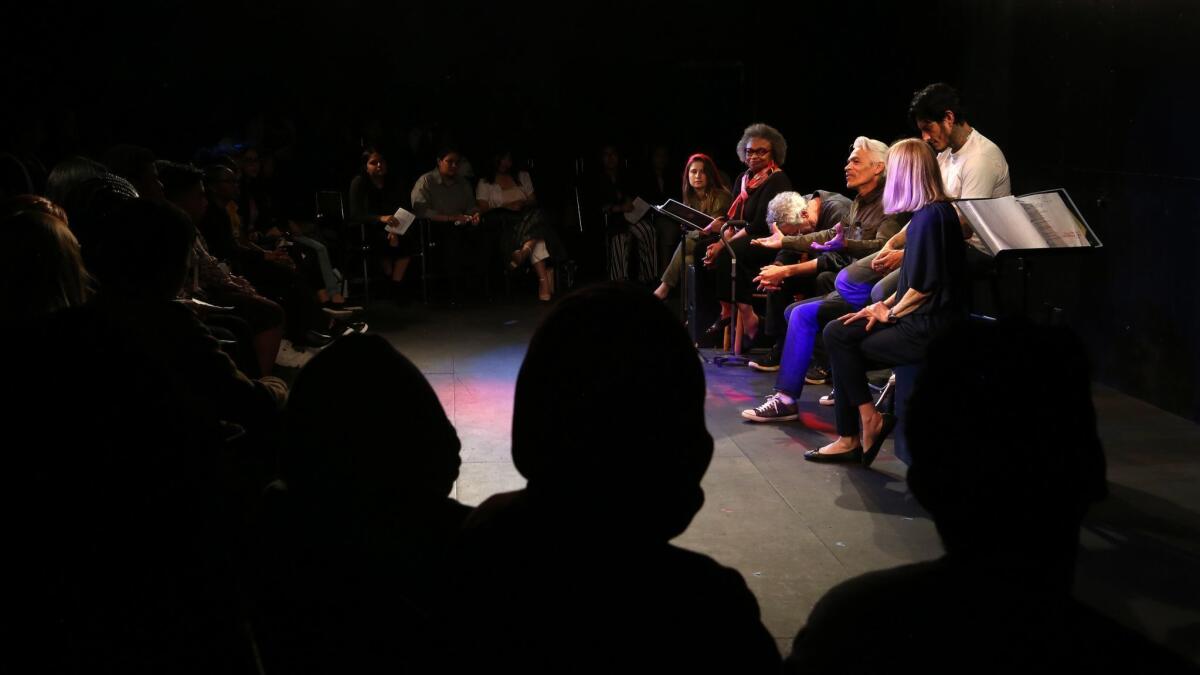
One of the King/Drew teachers who brought students to the play was Yvonne Divans-Hutchinson, who has been involved with Bush’s student theater program from the beginning.
Divans-Hutchinson taught at Markham Middle School — which she had attended as a child — for 33 years. Then she taught at King/Drew for 10 years before retiring. A little more than a year ago, she went back, as a substitute teacher, because the English program she gave so much of her heart to needed help after a teacher became an assistant principal.
She is about to turn 75, and said she keeps at it for two reasons.
She loves teaching, and she loves the students.
I checked with her later and she said the day after the play, students were still talking about how moving it was. One student handed her a poem she’d written about her father, who was murdered while serving time at the same prison where Gabriel does time in the play.
“She and I embraced and cried,” said Divans-Hutchinson. “In our community — and I grew up in Watts, lived in the projects and had a brother who was taken by violence — these are issues that really touched us. The play was poignant, it was heartbreaking, but in the end, the two characters talked about reconciliation, and that was the most impressive thing.”
Get more of Steve Lopez’s work and follow him on Twitter @LATstevelopez
More to Read
Start your day right
Sign up for Essential California for news, features and recommendations from the L.A. Times and beyond in your inbox six days a week.
You may occasionally receive promotional content from the Los Angeles Times.


